- Home
- Harlan Coben
Harlan Coben 3 Novel Collection Page 37
Harlan Coben 3 Novel Collection Read online
Page 37
Sirens should have gone off at a question like that. I should have right away reminded them of whom I was and that I wouldn’t answer any questions without an attorney present. But I am an attorney. A damned good one. And that, of course, just makes you more foolish when you represent yourself, not less so. I was also human. When you are rousted by the police, even with all my experience, you want to please. You can’t help that feeling.
“I was home.”
“Anyone who can verify that?”
“My daughter.”
York and Dillon looked back at the school. “That’s the girl who was tumbling in there?”
“Yes.”
“Anyone else?”
“I don’t think so. What’s this about?”
York was the one who was doing all the talking. He ignored my question. “Do you know a man named Manolo Santiago?”
“No.”
“Are you sure?”
“Pretty sure.”
“Why only pretty sure?”
“Do you know who I am?”
“Yep,” York said. He coughed into his fist. “You want us to maybe take a knee or kiss your ring or something?”
“That’s not what I meant.”
“Good, then we’re on the same page.” I did not like his attitude, but I let it slide. “So why are you only ‘pretty sure’ you don’t know Manolo Santiago?”
“I mean, the name isn’t familiar. I don’t think I know him. But maybe it’s someone I prosecuted or was a witness in one of my cases, or hell, maybe I met him at a fund-raiser ten years ago.”
York nodded, encouraging me to blabber more. I didn’t.
“Do you mind coming with us?”
“Where?”
“It won’t take long.”
“Won’t take long,” I repeated. “That doesn’t sound like a place.”
The two cops exchanged a glance. I tried to look as if I would hold my ground.
“A man named Manolo Santiago was murdered last night.”
“Where?”
“His body was in Manhattan. Washington Heights area.”
“And what does this have to do with me?”
“We think you might be able to help.”
“Help how? I already told you. I don’t know him.”
“You said”—York actually referred to his pad, but it was only for effect; he hadn’t written anything while I was talking—“that you were ‘pretty sure’ you didn’t know him.”
“I’m sure then. Okay? I’m sure.”
He snapped the pad closed with dramatic flare. “Mr. Santiago knew you.”
“How do you know that?”
“We’d prefer to show you.”
“And I’d prefer you tell me.”
“Mr. Santiago”—York hesitated as though choosing his next words by hand—“had certain items on him.”
“Items?”
“Yes.”
“Could you be more specific?”
“Items,” he said, “that point to you.”
“Point to me as what?”
“Yo, Mr. DA?”
Dillon—the Cinder Block—had finally spoken.
“It’s County Prosecutor,” I said.
“Whatever.” He cracked his neck and pointed at my chest. “You’re really starting to itch my ass.”
“Excuse me?”
Dillon stepped into my face. “Do we look like we’re here for a goddamn semantics lesson?”
I thought the question was rhetorical, but he waited. Finally I said, “No.”
“Then listen up. We got a dead body. The guy is linked to you in a big way. Do you want to come and help clear this up, or do you want to play more word games that make you look suspicious as hell?”
“Who exactly do you think you’re talking to, Detective?”
“A guy running for office who wouldn’t want us to take this directly to the press.”
“Are you threatening me?”
York stepped in. “Nobody is threatening anything.”
But Dillon had hit me where I lived. The truth was, my appointment was still only temporary. My friend, the current governor of the Garden State, had made me acting county prosecutor. There was also serious talk of my running for Congress, maybe even the vacant Senate seat. I would be lying if I said I didn’t have political ambitions. A scandal, even the fake whiff of one, would not play well.
“I can’t see how I can help,” I said.
“Maybe you can’t, maybe you can.” Dillon rotated the cinder block. “But you want to help if you can, don’t you?”
“Of course,” I said. “I mean, I don’t want your ass itching any more than it has to.”
He almost smiled at that one. “Then get in the car.”
“I have an important meeting this afternoon.”
“We’ll have you back by then.”
I expected a beat-up Chevy Caprice, but the car was a clean Ford. I sat in the back. My two new friends sat in the front. We did not speak for the ride. There was traffic at the George Washington Bridge, but we just hit our siren and sliced through it. When we were on the Manhattan side, York spoke.
“We think Manolo Santiago might be an alias.”
I said, “Uh-huh,” because I didn’t know what else to say.
“You see, we don’t have a positive ID on the victim. We found him last night. His driver’s license reads Manolo Santiago. We checked it out. It doesn’t appear to be his real name. We ran his prints. No hits. So we don’t know who he is.”
“And you think I will?”
They did not bother answering.
York’s voice was as casual as a spring day. “You’re a widower, Mr.
Copeland, right?”
“Right,” I said.
“Must be tough. Raising a kid on your own.”
I said nothing.
“Your wife had cancer, we understand. You’re very involved in some organization to find a cure.”
“Uh-huh.”
“Admirable.”
They should only know.
“This must be weird for you,” York said.
“How’s that?”
“Being on the other side. You’re usually the one asking the questions, not answering them. That’s gotta be a little strange.”
He smiled at me in the rearview mirror.
“Hey, York?” I said.
“What?”
“Do you have a playbill or a program?” I asked.
“A what?”
“A playbill,” I said. “So I can see your past credits, you know—before you landed the coveted role of Good Cop.”
York chuckled at that. “I’m just saying, it’s weird is all. I mean, have you ever been questioned by the police before?”
It was a setup question. They had to know. When I was eighteen years old, I worked as a counselor at a summer camp. Four campers—Gil Perez and his girlfriend, Margot Green, Doug Billingham and his girlfriend, Camille Copeland (aka my sister)—sneaked into the woods late one night.
They were never seen again.
Only two of the bodies have ever been found. Margot Green, age seventeen, was found with her throat slit within a hundred yards of the campsite. Doug Billingham, also seventeen, was found half a mile away. He had several stab wounds, but cause of death was also a slit throat. The bodies of the other two—Gil Perez and my sister, Camille—have never been found.
The case made headlines. Wayne Steubens, a rich-kid counselor at the camp, was caught two years later—after his third summer of terror—but not until he murdered at least four more teens. He was dubbed the Summer Slasher—an all-too-obvious moniker. Wayne’s next two victims were found near a Boy Scout camp in Muncie, Indiana. Another victim was attending one of those all-around camps in Vienna, Virginia. His last victim had been at a sports camp in the Poconos. Most had their throats slit. All had been buried out in the woods, some before death. Yes, as in buried alive. It took a fair amount of time to locate the bodies. The Poconos kid, for ex
ample, took six months to be found. Most experts believe that there are others still out there, still underground, deep in the woods.
Like my sister.
Wayne has never confessed, and despite being in a supermaximum-security facility for the past eighteen years, he insists that he had nothing to do with the four murders that started it all.
I don’t believe him. The fact that at least two bodies were still out there led to speculation and mystery. It gave Wayne more attention. I think he likes that. But that unknown—that glimmer—still hurts like hell.
I loved my sister. We all did. Most people believe death is the cruelest thing. Not so. After a while, hope is a far more abusive mistress. When you live with it as long as I have, your neck constantly on the chopping block, the axe raised above you for days, then months, then years, you long for it to fall and lop off your head. Most believed that my mother ran off because my sister was murdered. But the truth is the opposite. My mother left us because we could never prove it.
I wished Wayne Steubens would tell us what he did with her. Not to give her a proper burial or any of that. That would be nice, but beside the point. Death is pure, wrecking-ball destructive. It hits, you’re crushed, you start to rebuild. But not knowing—that doubt, that glimmer—made death work more like termites or some sort of relentless germ. It eats away from the inside. You cannot stop the rot. You cannot rebuild because that doubt will just keep gnawing away.
It still does, I think.
That part of my life, much as I want to keep it private, was always picked up by the media. Even the quickest Google search would have brought up my name in connection with the mystery of the Vanished Campers, as they were quickly dubbed. Heck, the story still played on those “real crime” shows on Discovery or Court TV. I was there that night, in those woods. My name was out there for the finding. I was questioned by the police. Interrogated. Under suspicion even.
So they had to know.
I chose not to answer. York and Dillon didn’t push it.
When we arrived at the morgue, they led me down a long corridor. No one spoke. I wasn’t sure what to make of this. What York said made sense now. I was on the other side. I had watched plenty of witnesses make walks like this. I had seen every sort of reaction in the morgue. The identifiers usually start off stoic. I’m not sure why. Are they bracing themselves? Or does a smidgeon of hope—that word again—still exist? I’m not sure. Whatever, the hope quickly vanishes. We never make a mistake on the ID. If we think it’s your loved one, it is. The morgue is not a place of last-minute miracles. Not ever.
I knew that they were watching me, studying my responses. I became aware of my steps, my posture, my facial expression. I aimed for neutral and then wondered why I bothered.
They brought me to the window. You don’t go into the room. You stay behind glass. The room was tiled so that you could just hose it down—no need to get fancy with decor or cleaners. All the gurneys save one were empty. The body was covered with a sheet, but I could see the toe tag. They really used those. I looked at the big toe sticking out from under the sheet—it was wholly unfamiliar. That was what I thought. I do not recognize the man’s toe.
The mind does funny things under stress.
A woman wearing a mask rolled the gurney closer to the window. I flashed back to, of all things, the day my daughter was born. I remember the nursery. The window was much the same, with those thin strips of foil forming diamonds. The nurse, a woman about the size of the woman in the morgue, rolled the little cart with my little daughter in it close to the window. Just like this. I guess I would normally have seen something poignant in this—the beginning of life, the end of it—but today I didn’t.
She pulled back the top of the sheet. I looked down at the face. All eyes were on me. I knew that. The dead man was about my age, early to midthirties. He had a beard. His head looked shaved. He wore a shower cap. I thought that looked pretty goofy, the shower cap, but I knew why it was there.
“Shot in the head?” I asked.
“Yes.”
“How many times?”
“Twice.”
“Caliber?”
York cleared his throat, as if trying to remind me that this wasn’t my case. “Do you know him?”
I took another look. “No,” I said.
“Are you sure?”
I started to nod. But something made me stop.
“What?” York said.
“Why am I here?”
“We want to see if you know—”
“Right, but what made you think I would know him?”
I slid my eyes to the side, saw York and Dillon exchange a glance. Dillon shrugged and York picked up the ball. “He had your address in his pocket,” York said. “And he had a bunch of clippings about you.”
“I’m a public figure.”
“Yes, we know.”
He stopped talking. I turned toward him. “What else?”
“The clippings weren’t about you. Not really.”
“What were they about?”
“Your sister,” he said. “And about what happened in those woods.”
The room dropped ten degrees, but hey, we were in a morgue. I tried to sound nonchalant. “Maybe he’s a real-crime nut. There are lots of them.”
He hesitated. I saw him exchange a glance with his partner.
“What else?” I asked.
“What do you mean?”
“What else did he have on him?”
York turned toward a subordinate I hadn’t even noticed was standing there. “Can we show Mr. Copeland here the personal effects?”
I kept my eye on the dead man’s face. There were pockmarks and lines. I tried to smooth them out. I didn’t know him. Manolo Santiago was a stranger to me.
Someone pulled out a red plastic evidence bag. They emptied it out onto a table. From the distance I could see a pair of blue jeans and a flannel shirt. There was a wallet and a cell phone.
“You check the cell phone?” I asked.
“Yep. It’s a throwaway. The phone log is empty.”
I wrested my gaze away from the dead man’s face and walked over to the table. My legs quaked.
There were folded sheets of paper. I carefully opened one up. The article from Newsweek. The picture of the four dead teens was there—the Summer Slasher’s first victims. They always started with Margot Green because her body was found right away. It took another day to locate Doug Billingham. But the real interest lay in the other two. Blood had been found and torn clothes belonging to both Gil Perez and my sister—but no bodies.
Why not?
Simple. The woods were massive. Wayne Steubens had hidden them well. But some people, those who loved a good conspiracy, didn’t buy that. Why had just those two not been found? How could Steubens have moved and buried bodies so quickly? Did he have an accomplice? How had he pulled it off? What were those four doing in those woods in the first place?
Even today, eighteen years after Wayne’s arrest, people talk about the “ghosts” in those woods—or maybe there is a secret cult living in an abandoned cabin or escaped mental patients or men with hook arms or bizarre medical experiments gone wrong. They talk about the boogeyman, finding the remnants of his burned-out campfire, still surrounded by the bones of children he’d eaten. They say how at night they can still hear Gil Perez and my sister, Camille, howl for vengeance.
I spent a lot of nights out there, alone in those woods. I never heard anyone howl.
My eyes moved past Margot Green’s picture and Doug Billingham’s. The photograph of my sister was next. I had seen this same shot a million times. The media loved it because she looked so wonderfully ordinary. She was the girl-next-door, your favorite babysitter, the sweet teen who lived down the block. That wasn’t Camille at all. She was mischievous, with lively eyes and a sideways devil-may-care grin that knocked the boys back a step. This picture was so not her. She was more than this. And maybe that had cost her her life.
I was about
to head over to the final picture, the one of Gil Perez, but something made me pull up.
My heart stopped.
I know that sounds dramatic, but that was how it felt. I looked at the pile of coins from Manolo Santiago’s pocket and saw it, and it was as if a hand reached into my chest and squeezed my heart so hard it couldn’t beat anymore.
I stepped back.
“Mr. Copeland?”
My hand went out as if it were acting on its own. I watched my fingers pluck it up and bring it to my eye level.
It was a ring. A girl’s ring.
I looked at the picture of Gil Perez, the boy who’d been murdered with my sister in the woods. I flashed back twenty years. And I remembered the scar.
“Mr. Copeland?”
“Show me his arm,” I said.
“Excuse me?”
“His arm.” I turned back to the window and pointed to the corpse. “Show me his goddamn arm.”
York signaled to Dillon. Dillon pressed the intercom button. “He wants to the see the guy’s arm.”
“Which one?” the woman in the morgue asked.
They looked at me.
“I don’t know,” I said. “Both, I guess.”
They looked puzzled, but the woman obeyed. The sheet was pulled back.
The chest was hairy now. He was bigger, at least thirty pounds more than he was back in those days, but that wasn’t surprising. He had changed. We all had. But that wasn’t what I was looking for. I was looking at the arm, for the ragged scar.
It was there.
On his left arm. I did not gasp or any of that. It was as if part of my reality had just been pulled away and I was too numb to do anything about it. I just stood there.
“Mr. Copeland?”
“I know him,” I said.
“Who is he?”
I pointed to the picture in the magazine. “His name is Gil Perez.”
CHAPTER 2
THERE WAS A TIME WHEN PROFESSOR LUCY GOLD, PHD in both English and psychology, loved office hours.
It was a chance to sit one-on-one with students and really get to know them. She loved when the quiet ones who sat in the back with their heads down, taking notes as though it were dictation, the ones who had their hair hanging in front of their faces like a protective curtain—when they arrived at her door and raised their eyes and told her what was in their hearts.

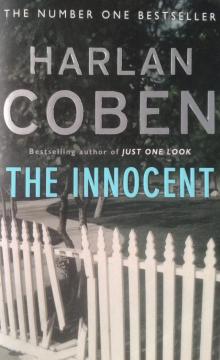 The Innocent
The Innocent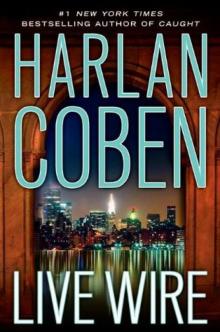 Live Wire
Live Wire Play Dead
Play Dead Drop Shot
Drop Shot Seconds Away
Seconds Away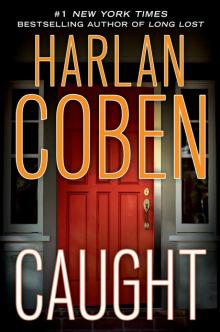 Caught
Caught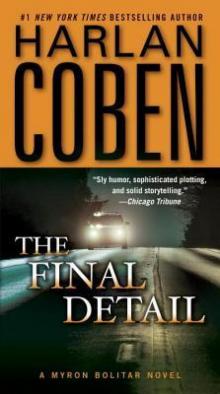 The Final Detail
The Final Detail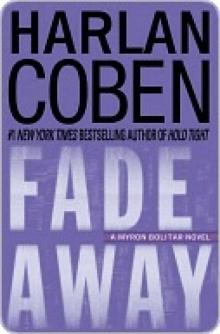 Fade Away
Fade Away Home
Home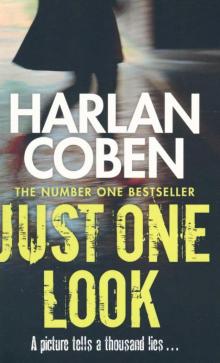 Just One Look
Just One Look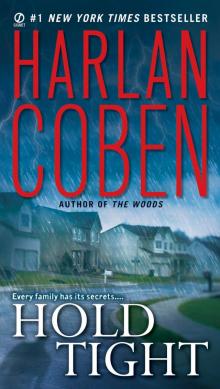 Hold Tight
Hold Tight Fool Me Once
Fool Me Once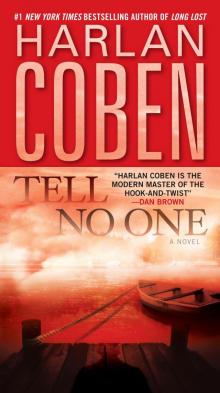 Tell No One
Tell No One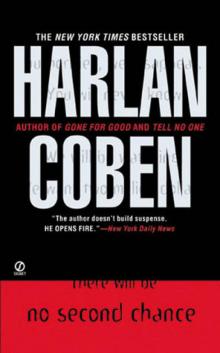 No Second Chance
No Second Chance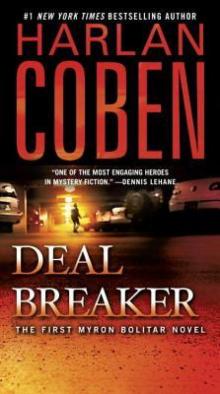 Deal Breaker
Deal Breaker Long Lost
Long Lost One False Move
One False Move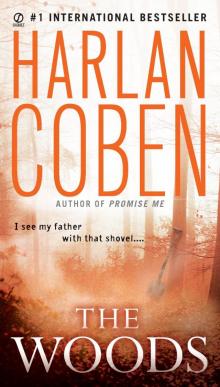 The Woods
The Woods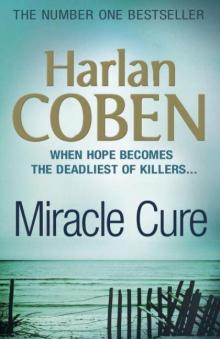 Miracle Cure
Miracle Cure Found
Found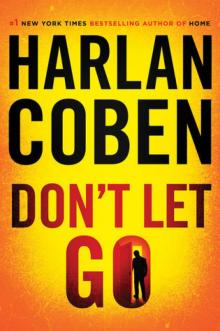 Don't Let Go
Don't Let Go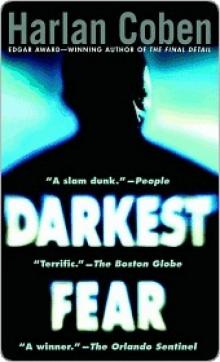 Darkest Fear
Darkest Fear The Stranger
The Stranger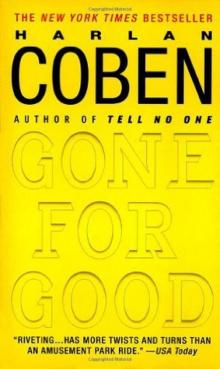 Gone for Good
Gone for Good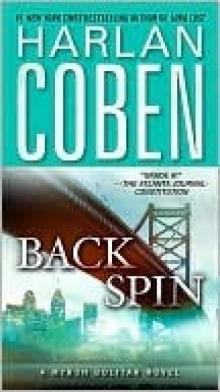 Back Spin
Back Spin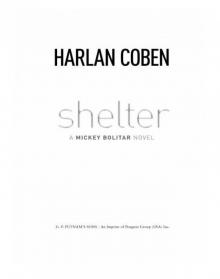 Shelter
Shelter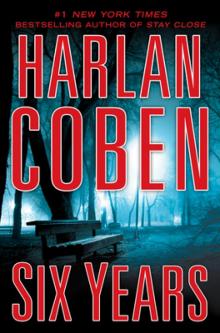 Six Years
Six Years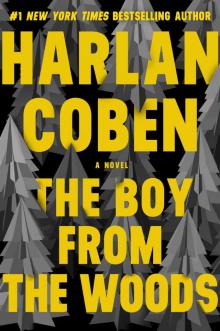 The Boy from the Woods
The Boy from the Woods Missing You
Missing You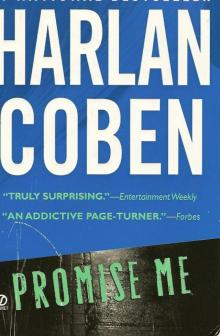 Promise Me mb-8
Promise Me mb-8 The Final Detail: A Myron Bolitar Novel
The Final Detail: A Myron Bolitar Novel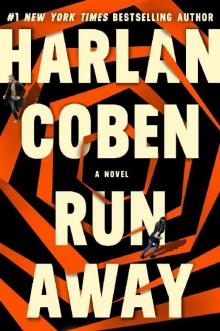 Run Away
Run Away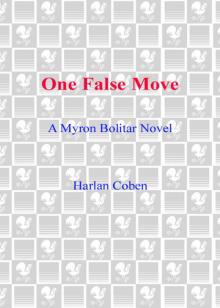 One False Move: A Myron Bolitar Novel
One False Move: A Myron Bolitar Novel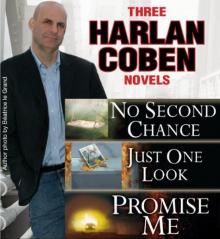 Three Harlan Coben Novels
Three Harlan Coben Novels the Woods (2007)
the Woods (2007) Tell No One (2001)
Tell No One (2001) the Innocent (2005)
the Innocent (2005)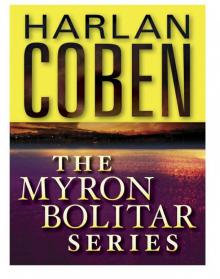 The Myron Bolitar Series 7-Book Bundle
The Myron Bolitar Series 7-Book Bundle Gone for Good (2002)
Gone for Good (2002) Caught (2010)
Caught (2010) Hold Tight (2008)
Hold Tight (2008)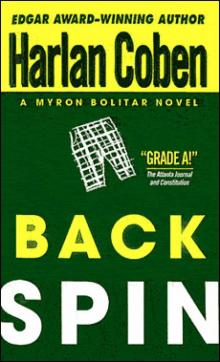 04 - Back Spin
04 - Back Spin Miracle Cure (1991)
Miracle Cure (1991) Harlan Coben 3 Novel Collection
Harlan Coben 3 Novel Collection Just One Look (2004)
Just One Look (2004)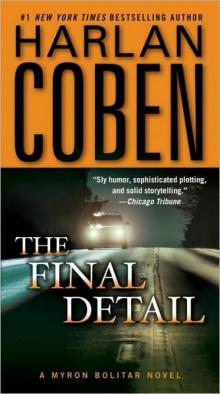 The Final Detail mb-6
The Final Detail mb-6 Play Dead (2010)
Play Dead (2010)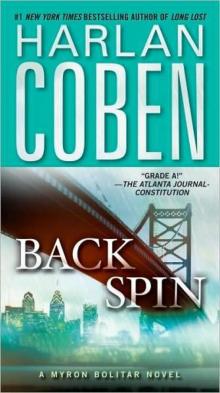 Back Spin mb-4
Back Spin mb-4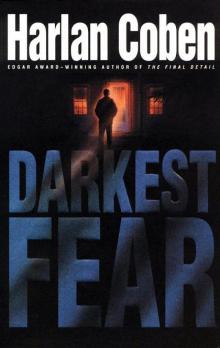 Darkest Fear mb-7
Darkest Fear mb-7